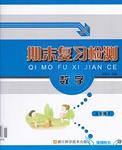题目内容
Adults are often surprised by how well they remember something they learned as children but have never practised in the meantime. A man who has not had an opportunity to go swimming for years can ___55___ swim as well as ever when he gets back in the water. He can get on a bicycle after several decades and still ___56___ away. A mother who has not ___57___ the words for years can teach her daughter the poem that begins “Twinkle, twinkle, little star” or recite the story of Cinderella or Snow White.
One explanation is the law of over learning, which can be stated as following: ___58___ we have learned something, additional learning increases the ___59___ of time we will remember it.
In childhood, we usually continue to practise such skills as swimming, bicycle riding long after we have learned them. We continue to listen to and ___60___ ourselves of poems such as “Twinkle, twinkle, little star. We not only learn but ___61___.
The law of over learning explains why cramming(突击学习) for an examination, ___62___ it may result in a passing grade, is not a ___63___way to learn a school course. By cramming, a student may learn the subject well enough to get by on the examination, but he is likely soon to forget almost everything he learned. A little over learning; ___64___, is usually a good investment toward the future.
55. A. only B. hardly C. still D. even
56. A. move B. drive C. travel D. ride
57. A. thought about B. cared for C. showed up D. brought up
58. A. Before B. Once C. Until D. Unless
59. A. accuracy B. unit C. limit D. length
60. A. remind B. inform C. warn D. recall
61. A. recite B. overlearn C. research D. improve
62. A. though B. so C. if D. after
63. A. convenient B. demanding C. satisfactory D. swift
64. A. at most B. by the way C. on the other hand D. in the end
55---64 CDABB ABACC
解析:
55. C。这里所举的例子是为了证明第一句的论点,所以用still表示他还是和小时候一样会游泳。
56. D。ride away是骑走的意思。
57. A thought about “思考,考虑”;care for“喜爱”;show up“出现、露面”;bring up“抚育孩子或呕吐”,选项中与记忆有关的只有A。
58. B。由前后两句的语意知两句间是条件关系,once可以做连接副词引导条件状语从句,意思是“一旦”。
59. B。length of time的意思是“时间的长度”。
60. A。remind somebody of something为固定词组,意思是“提醒某人某件事”;inform somebody of something表示“通知某人某件事”;warn somebody of something表示“警告某人某件事”;recall不和介词of搭配,由语境知答案A正确。
61. B。由本段第一句知此空填overlearn,与第一句呼应。
62. A。本段作者在批判突击式学习的缺点前先让一步说一下其作用,因此选though,在这里引导让步状语从句。
63. C。由下文作者介绍突击学习的不当之处可以看出,突击学习不是令人满意的学习方法。
64. C。最后一段介绍了两种学习方法。第一种是突击性学习方法的不当之处,然后作者转而谈到另外一种方法,因此,选择C项。

 期末复习检测系列答案
期末复习检测系列答案 超能学典单元期中期末专题冲刺100分系列答案
超能学典单元期中期末专题冲刺100分系列答案 黄冈360度定制密卷系列答案
黄冈360度定制密卷系列答案 阳光考场单元测试卷系列答案
阳光考场单元测试卷系列答案Social networking isn't only for the under 40s. More than 25 percent of Americans 50 years and older stay connected using sites such as Facebook, MySpace and Twitter, according to new research.
"The latest data tells us that more and more social networking is becoming a part of everyday life for Americans 50 plus," said Kevin Donnellan, the chief communications officer at AARP, which released the report.
Nearly a quarter of older Americans are on Facebook and 73 percent said they use it to stay in touch with relatives, but not just their children and grandchildren. "They are using the Internet to keep up with the world and the people who are important to them," said Jean Koppen, the author of the report. She added that older adults are also on Facebook to stay connected, not only with their family, but with their friends and peers. Almost 50 percent of older adults were introdu
touch with relatives, but not just their children and grandchildren. "They are using the Internet to keep up with the world and the people who are important to them," said Jean Koppen, the author of the report. She added that older adults are also on Facebook to stay connected, not only with their family, but with their friends and peers. Almost 50 percent of older adults were introdu ced to the social networking sites by a family member, mainly a child or grandchild. "Just under one-fifth of adults aged 50 and older say they do not use the Internet," according to the report.
ced to the social networking sites by a family member, mainly a child or grandchild. "Just under one-fifth of adults aged 50 and older say they do not use the Internet," according to the report.
The findings are based on a telephone survey of 1,863 adults. In addition to keeping up on Facebook and Twitter older adults are also aware of the latest technology. Eighty-three percent had heard about the Apple iPad and 11 percent intended to buy one.
【小题1】What’s the main idea of the passage?
A. Social networking isn’t for the under 40s in the U.S.A.
B. American old people’s way of life is quite fashionable.
C. The Internet is also popular among the American over 50s.
D. Facebook, MySpace and Twitter are hot websites in America.
【小题2】Which of the following statements is TRUE according to the passage?
| A.Nearly 2000 adults took part in the survey on line. |
| B.The over 50s were introduced to the Internet by the young. |
| C.About 20% of adults aged 50 and older don’t like the Internet. |
| D.Many Americans 50 plus stay connected using the Internet. |
 entence used for?
entence used for? E. It’s used as a reason for the popularity of the Apple iPad in America.
F. It’s used as an example of the older adults’ awareness of the latest technology.
G. It’s
 used as a suggestion to the readers who are interested in the IT products.
used as a suggestion to the readers who are interested in the IT products.H. It’s used as a choice for the Americans intending to use Social networking.
【小题4】Where can we most probably read this passage?
I. In an experiment introduction.
J. In a computer magazine.
K. In a product advertisement.
In a news report
This is the age of being busy. Many of us live in busy places and have busy lives. Even the roads are busy as we try to get from here to there. Adults are busy going to jobs and taking care of their families. Kids are busy, too, going to school and doing a lot of homework after school and on weekends.
Busy isn’t bad, necessarily. If you are not busy enough you might be bored. But if you are too busy, you might break down. For example, if you have a soccer game that runs late on a school night and you haven’t eaten dinner or done your homework, that’s a not-so-fun kind of busy. We wanted to know what kids thought, so we did a kidsPoll about being busy with 882girls and boys aged 9 to 13.
Almost all of them said they felt stressed because they were too busy. About half said they felt this way once in a while or some of the time. But 17% said they felt this way most of the time and 24% said they felt this all the time! Oh dear, that’s no fun.
Only 4% of kids said they wanted less free time and 18% said they already had just the right amount. But, no big surprise, 61% of kids wish they had a lot more free time. If they had more time, most would spend it hanging out or playing with friends.
Often, adults plan large parts of a kid ’s day, especially during the school year. kids can’t tell their parents they’ll be skipping school(逃学) today to get more free time! But they can tell their parents they’d like to play a game or read a book during their free time instead of watching TV.
1.The purpose of the first paragraph is to _____.
|
A.Introduce the topic |
|
B.Support the main idea |
|
C.Raise the topic sentence |
|
D.Attract the readers’ attention |
2.By giving the example of a late soccer game, the writer intends to tell us______.
|
A.Being too busy is bad for the kids |
|
B.It is no fun to be busy for the kids |
|
C.Homework should go before gam. |
|
D.Being busy may cause the kids to feel bored |
3.According to the passage, the KidsPoll is done to carry out research on _____.
|
A.How kids arrange their free time |
|
B.What kids think of being busy |
|
C.How many kids felt stressed |
|
D.What kids do with their study |
4.From the passage, we can infer that the writer agrees kids can_____.
|
A.Spend their free time hanging or playing out |
|
B.Get a lot more free time from their parents |
|
C.Have a right amount of free time with permission |
|
D.Get more free time from school work sometimes |
